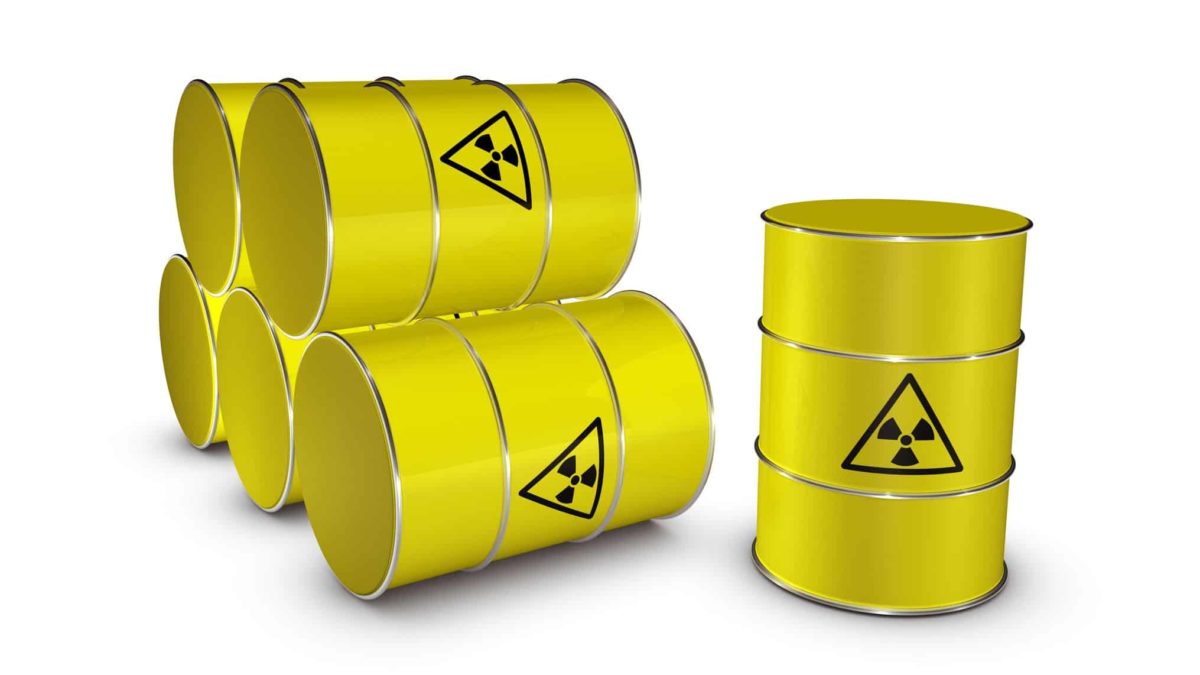ASX uranium shares are rising on Wednesday after the price of uranium hit a 12-year high overnight.
The uranium price rose 3.93% to US$72.75 per pound in last night's trading session.
The price is being pushed higher due to strong global demand from utilities and restricted supply.
Fund manager Monash Investors has referred to ASX uranium shares as a "shining light" in its portfolio in an update to investors.
But before we get into that, let's take a look at how uranium stocks are performing today.
ASX uranium shares rising strongly on Tuesday
Once again, ASX uranium shares are outperforming the general market and their own sector peers.
The S&P/ASX 200 Energy Index (ASX: XEJ) is currently up 0.54% and the S&P/ASX 200 Index (ASX: XJO) is up 0.49%. However, this sample of uranium stocks below are all trading at least 3% higher.
At the time of writing:
- The Boss Energy Ltd (ASX: BOE) share price is up 7% to $4.64
- The Deep Yellow Limited (ASX: DYL) share price is up 3.5% to $1.33
- The Paladin Energy Ltd (ASX: PDN) share price is up 3.2% to $1.04
- The Bannerman Energy Ltd (ASX: BMN) share price is up 3.1% to $2.67
Decarbonisation and oil concerns push uranium demand higher
Trading Economics analysts say governments are being increasingly driven to invest in nuclear power due to decarbonisation and uncertainty relating to the global oil supply.
OPEC recently cut oil production targets, and the war in Ukraine and the new conflict in Gaza are creating a more uncertain environment.
There is growing global support for nuclear energy to play a role in global decarbonisation.
This has led to enhanced market sentiment for ASX uranium shares, with several stocks resetting their 52-week highs recently.
ASX uranium shares 'a shining light'
Monash Investors has revealed it has "major exposure" to uranium shares at the moment.
In the September update for the Small Companies Trust Hedge Fund (ASX: MAAT), the fundie said:
One shining light in the portfolio this month was our exposure to uranium via Paladin and Boss Energy, with the uranium price rising 20% to break through the US$70lbs level.
Monash explained that demand for uranium was currently outstripping supply, as global inventories are run down "to unsustainably low levels".
The fundie said:
The projected deficit is coming from both the supply and demand sides of the equation.
From the supply side, the low uranium price over the past decade has stymied any development of new mines and seen many mines put under care and maintenance. The other supply issue is Russia, with increasing pressure building for Western Utilities to turn away from this source.
On the demand side, the growth is significant. Around the world, there is a growing realisation that renewables and energy storage solutions are not yet at a level to meet the base load requirements to allow the decommissioning of fossil fuel energy production. This is seeing a number of Governments turning to nuclear as a solution in their net zero emission plans.
Monash says there are 59 new reactors under construction in 15 countries and a further 100 are in the advanced stages of planning in 17 countries. Currently, just 436 reactors are in operation worldwide.
'A big positive' for the uranium price
Monash says the supply deficit will be resolved from a combination of demand destruction and supply responses, both of which can only occur if the uranium price remains strong.
The fundie added:
Most of the new supply coming on stream (including Paladin and Boss Energy) is coming from mine restarts with incentive pricing above US$60lbs required. Of course to generate new mines an even higher incentive price is required.
Importantly, utilities' demand for uranium is highly price inelastic and uranium represents a miniscule cost in proportion to power plants' overall operating costs.
This combined with a clear supply deficit is clearly a big positive for the outlook for the uranium price.
Nuclear industry calls on governments to act
At the inaugural Roadmaps to New Nuclear conference hosted by the OECD Nuclear Energy Agency (NEA) and the French Government late last month, a group of nuclear industry associations issued a statement calling on global governments to invest in uranium.
They said:
We recognize that we are at a critical juncture in terms of climate and energy security, and nuclear energy must play an essential role—alongside other clean energy technologies—if we are to meet this moment.
To support decarbonization at the magnitude required, the international community must work to extend the operating period of existing nuclear generation resources, develop policies and tools to enable large scale deployment of new nuclear energy generation, and accelerate the development of a new portfolio of reactor technologies.









